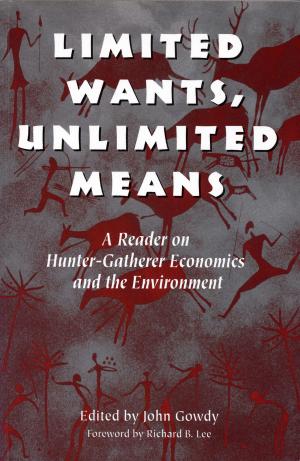Why Do We Recycle?
Markets, Values, and Public Policy
Business & Finance, Economics, Sustainable Development, Nonfiction, Social & Cultural Studies, Political Science, Government, Public Policy| Author: | Frank Ackerman | ISBN: | 9781597267885 |
| Publisher: | Island Press | Publication: | April 15, 2013 |
| Imprint: | Island Press | Language: | English |
| Author: | Frank Ackerman |
| ISBN: | 9781597267885 |
| Publisher: | Island Press |
| Publication: | April 15, 2013 |
| Imprint: | Island Press |
| Language: | English |
The earnest warnings of an impending "solid waste crisis" that permeated the 1980s provided the impetus for the widespread adoption of municipal recycling programs, and since that time America has witnessed a remarkable rise in public participation in recycling activities. Recently, however, a backlash against these programs has developed. A vocal group of "anti-recyclers" has appeared, arguing that recycling is not an economically efficistrategy for addressing waste managemproblems. In Why Do We Recycle? Frank Ackerman examines the arguments for and against recycling, focusing on the debate surrounding the use of economic mechanisms to determine the value of recycling. Based on previously unpublished research, Ackerman presents an alternative view of the theory of market incentives, challenging the notion that setting appropriate prices and allowing unfettered competition will result in the mefficilevel of recycling. Among the topics he considers are: externality issues, the landfill crisis and disposal facility siting, container deposit legislation, environmental issues that fall outside of market theory, costs and benefits of municipal recycling programs, life-cycle analysis and packaging policy, the impacts of production in extractive and manufacturing industries, composting and organic waste management, economics of conservation, and material use and long-term sustainability. Ackerman explains why purely economic approaches to recycling are incomplete and argues for a differkind of decisionmaking, one that addresses social issues, future as well as presresource needs, and non-economic values that cannot be translated into dollars and cents. Backed by empirical data and replete with specific examples, the book offers valuable guidance for planners and policymakers as well as an accessible introduction to the subject for students and citizens interested in the social, economic, and ethical underpinnings of recycling efforts.
The earnest warnings of an impending "solid waste crisis" that permeated the 1980s provided the impetus for the widespread adoption of municipal recycling programs, and since that time America has witnessed a remarkable rise in public participation in recycling activities. Recently, however, a backlash against these programs has developed. A vocal group of "anti-recyclers" has appeared, arguing that recycling is not an economically efficistrategy for addressing waste managemproblems. In Why Do We Recycle? Frank Ackerman examines the arguments for and against recycling, focusing on the debate surrounding the use of economic mechanisms to determine the value of recycling. Based on previously unpublished research, Ackerman presents an alternative view of the theory of market incentives, challenging the notion that setting appropriate prices and allowing unfettered competition will result in the mefficilevel of recycling. Among the topics he considers are: externality issues, the landfill crisis and disposal facility siting, container deposit legislation, environmental issues that fall outside of market theory, costs and benefits of municipal recycling programs, life-cycle analysis and packaging policy, the impacts of production in extractive and manufacturing industries, composting and organic waste management, economics of conservation, and material use and long-term sustainability. Ackerman explains why purely economic approaches to recycling are incomplete and argues for a differkind of decisionmaking, one that addresses social issues, future as well as presresource needs, and non-economic values that cannot be translated into dollars and cents. Backed by empirical data and replete with specific examples, the book offers valuable guidance for planners and policymakers as well as an accessible introduction to the subject for students and citizens interested in the social, economic, and ethical underpinnings of recycling efforts.















